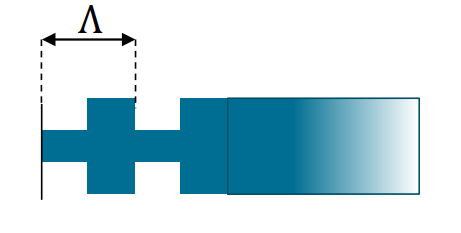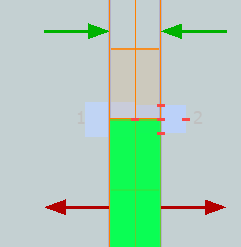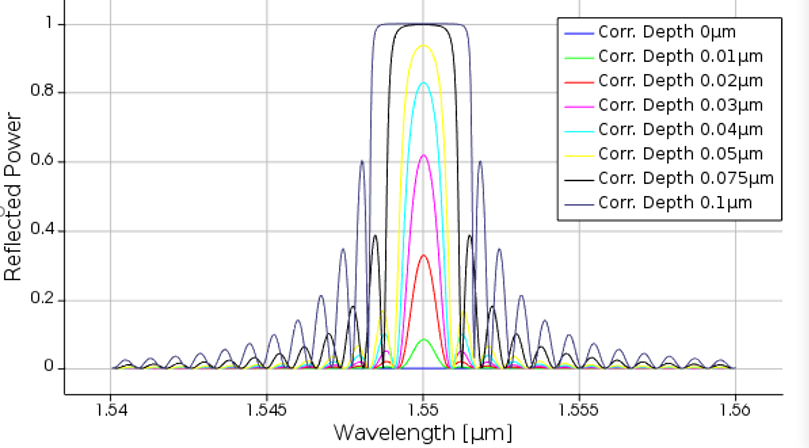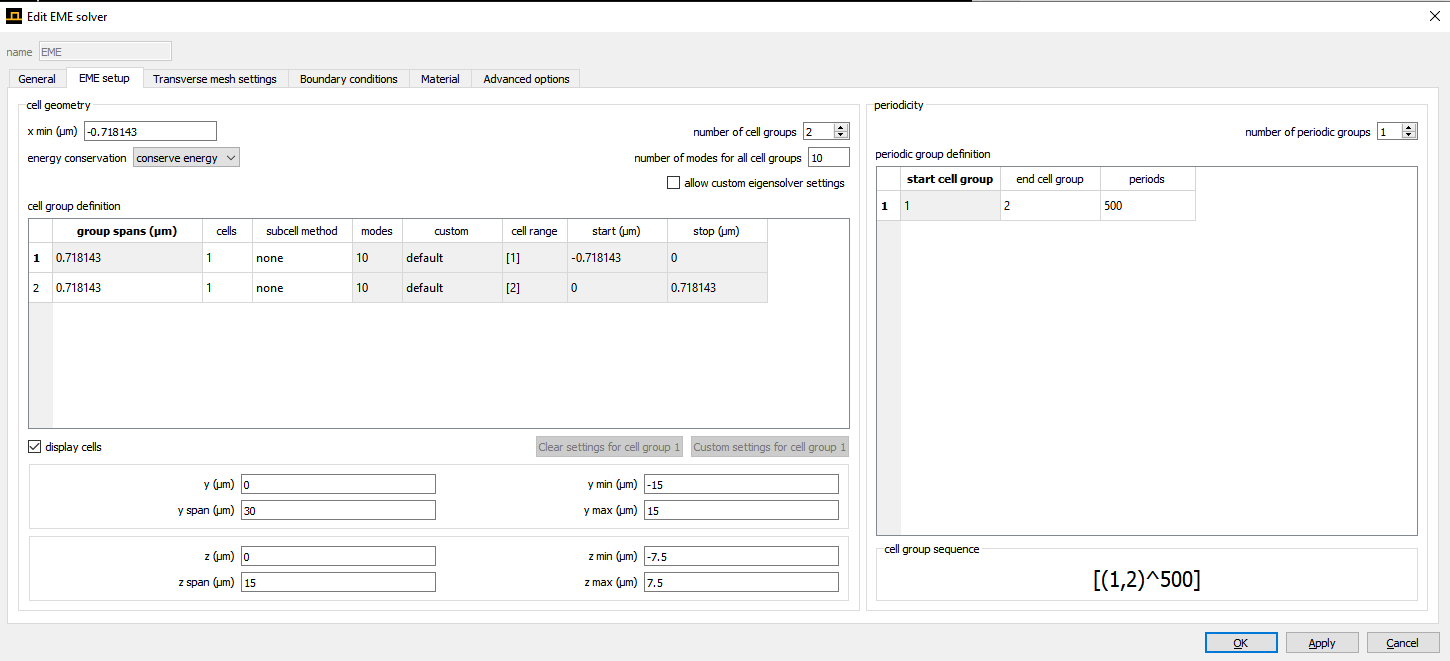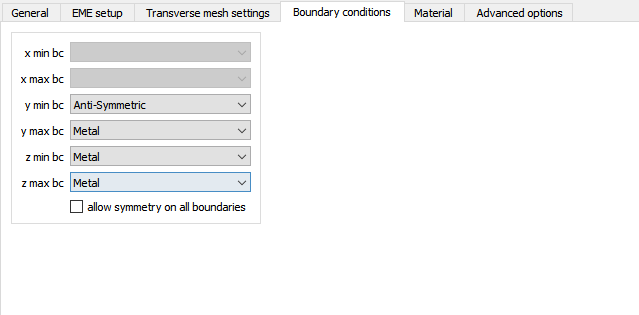TAGGED: Bragg-Grating, photonics
-
-
June 9, 2023 at 9:35 am
jasper
SubscriberHello,
I simulated the following bragg grating:
(Sketch:)
(Setup in Lumerical:)
Since the sections are both single mode, the mode convergence sweep works out fine. I get the following results:
The spectrum has a typical bragg grating form, however the FWHM and Reflectance are too high compared to measurements and simulations with other programs. For example, for a corrugation depth of 0.075µm, the FWHM is about 2.3nm when it should be about 0.7nm and the reflectivity is approximately 1 when it should be significantly lower (0.7). I have used the same geometry setup and the same # of periods. The grating period was calculated using the approximation via the average neffs of the fundamental TE modes of each cell: (neff=sqrt((neff_l1^2)*(1-duty_cycle)+(neff_l2^2)*duty_cycle). These are my EME settings:
Could this perhaps be caused by the integrated wavelength sweep feature in EME? What is going on here?
I'd appreciate some help.
Thanks,
Jasper
-
June 9, 2023 at 5:58 pm
Guilin Sun
Ansys EmployeeIt might be one reason. The built-in wavelength sweep does not count the dispersion, eg, it uses the neff of the initially calculated modes at the specified wavelength.
Other reason might be:
1: the geometrically averaged effective index is a approximation
2: need proper number of modes
In addition, the group span is set to 0.718143um. It may not matter much but I usually suggest to use fewer digits so to be easier to compare with experiment. 1nm length might be difficult to control in manufacturing.
-
- The topic ‘FWHM and Reflectance of Bragg Grating unexpectedly high’ is closed to new replies.



-
2979
-
970
-
857
-
750
-
599

© 2025 Copyright ANSYS, Inc. All rights reserved.

